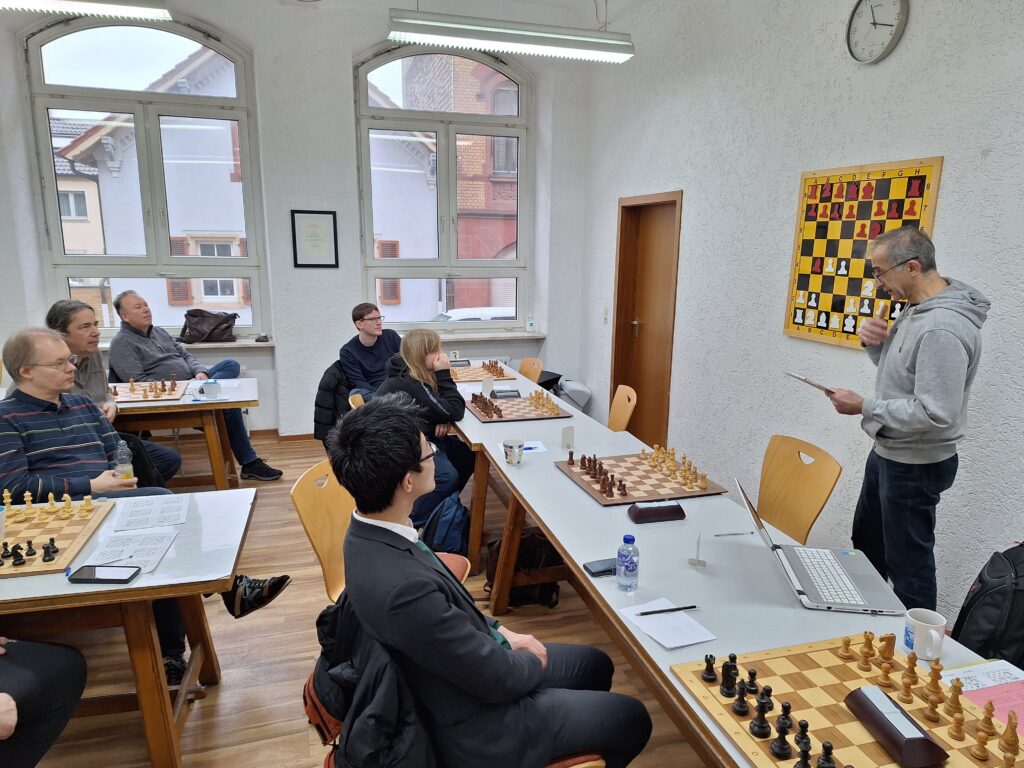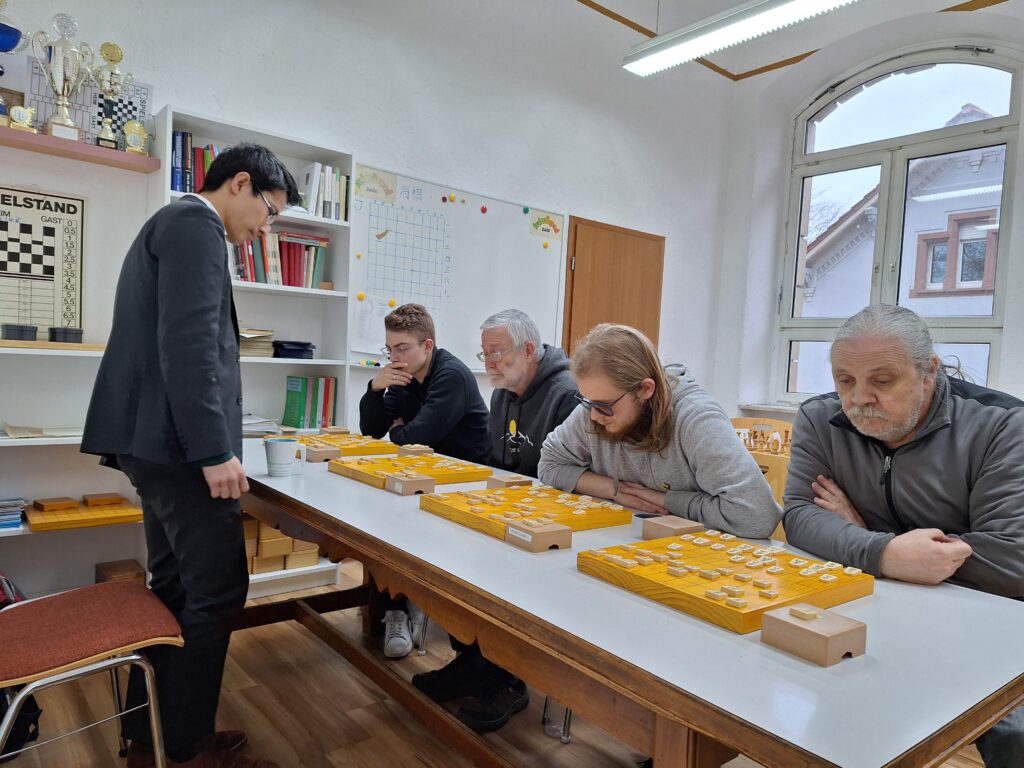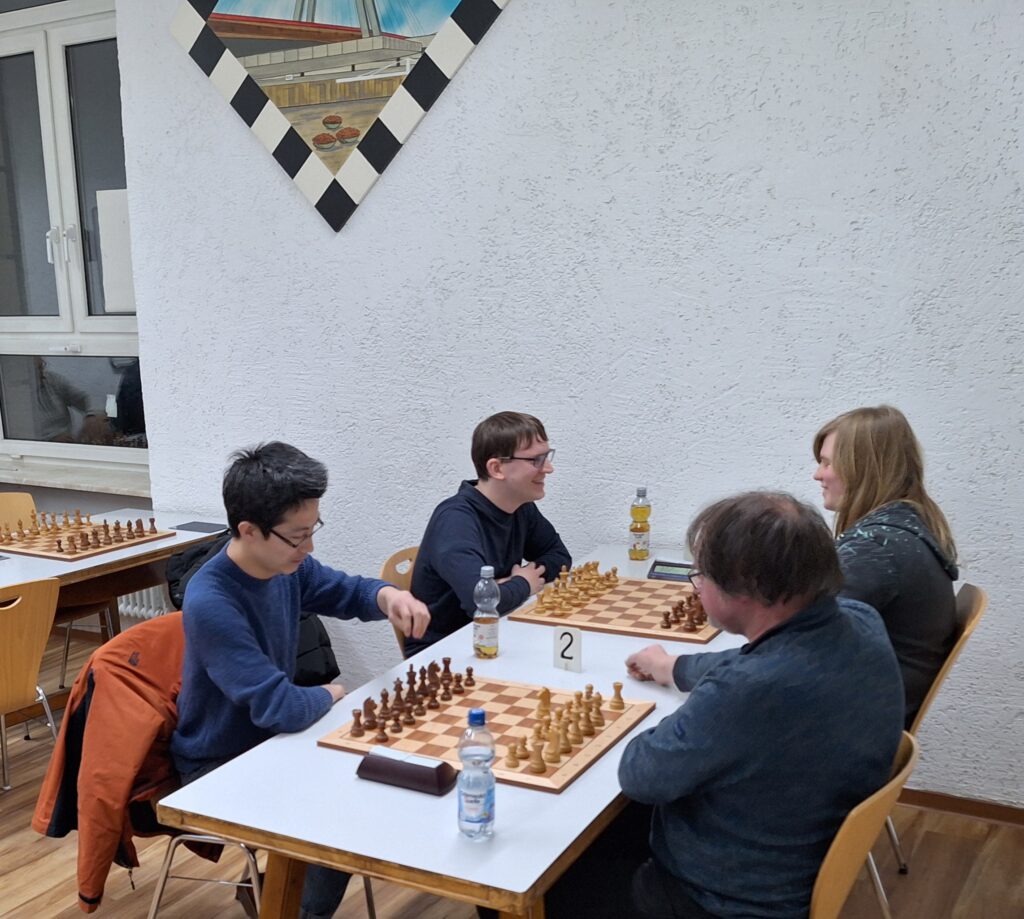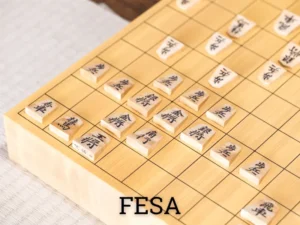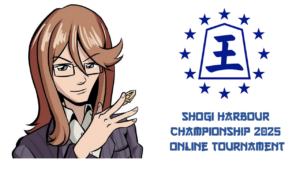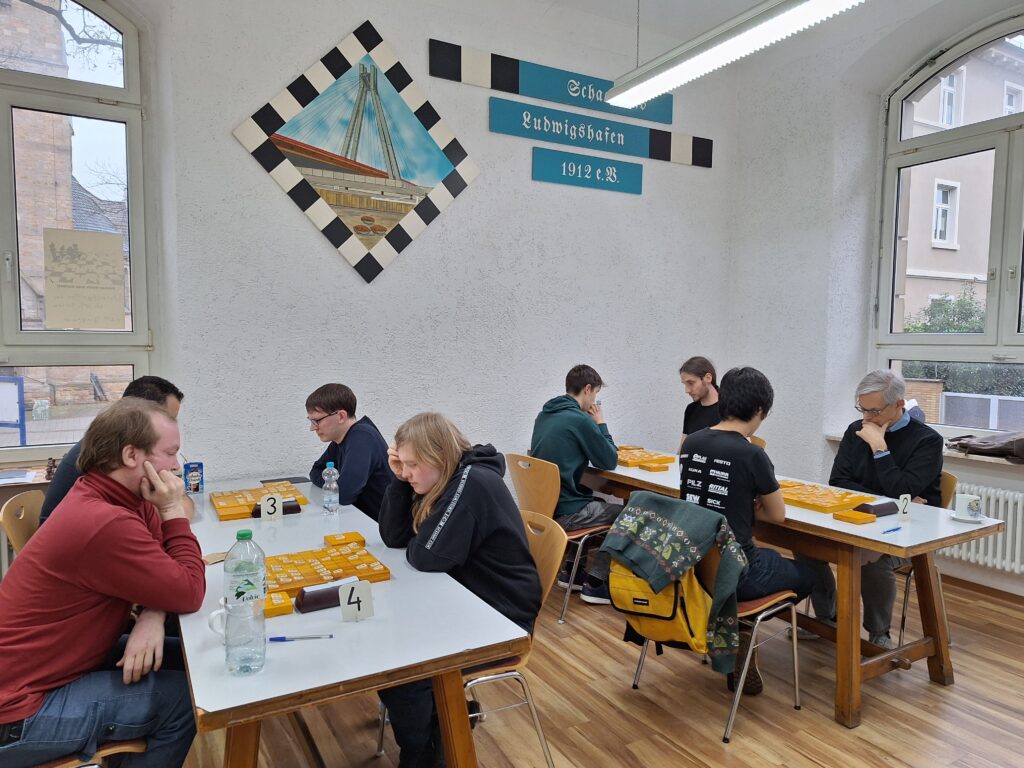
Ludwigshafen in Germany set the stage for a series of chess on shogi events: A blitz chess tournament on December 6 marked the start. The winner was Fabian Fichter from the Shogi Kurpfalz club, who is also a FIDE chess master. A good performance was also recorded by shogi teaching professional Tetsuaki Sanada (professional 3. Dan) from Manchester.
The next day first saw an intensive chess training by grandmaster Sergey Galdunts from Armenia. Sergey had prepared a range of practical chess problems and game comments. Both, chess and shogi players attended the session.
Shogi entered centre stage on December 7 after lunch with a combined training and tournament event. Players took turn to compete in the knockout contest and to attend teaching games and analysis by Tetsuaki Sanada. Richard Rödel from Berlin emerged as the winner of the tournament, followed by Bilal Dardour and Frank Rövekamp.
Shogi and chess players combined at the end for a lively dinner at the Greek restaurant next door. Here teaching professional Tetsuaki Sanada answered some questions:
Q.: How long have you been living and Manchester and what are you doing there?
Sanada: I came to Manchester in February 2021, so it’s been almost 4 years. Currently working as an expatriate employee of a Japanese manufacturing company, I am taking care of business planning, accounting, and finance.
Q.: After getting some experience now with European shogi players in Britain, Spain and Germany, what do you consider their strengths and weaknesses? How does it compare with Japanese players?
Sanada: I’m very impressed that there are quite a few players who can make deep and accurate calculations if they take the time. Many of them have chess experience, so I think those skills are utilised in shogi.
On the other hand, I feel like they are not very used to situations where intuition is required in a short period of time. I’m sure European players have great potential, but they may not have enough experience yet.
Q.: Which kind of training to you recommend for European players, considering that they have much less access to teaching material then shogi fans in Japan?
Sanada: The lack of English teaching materials needs to be improved, so it is certainly not so easy. I think what European players can do now, which is relatively effective, is to play as many high-quality games as possible. It would be good idea to participate in tournaments around Europe, and if possible, play games with people who are slightly stronger than them, discuss together, and get advice. If OTB is difficult, online matches are also fine, but it is important to review each game. It is best to ask strong players to give you advice from each game. It is useful to use an engine to analyse your game as your reference. However, it is also very important to think for yourself too.
Q.: You became also a strong chess player in the meantime with an ELO-rating over 2000. What attracts you to chess? How far do you want to go?
Sanada: Chess is played widely all over the world, so the biggest attraction for me is being able to communicate with people from all over the world through chess. Also, just like when I was a child and crazy about shogi, I can feel myself getting stronger every time I learn something new, so that’s a lot of fun.
I only started playing chess two and half years ago, but I want to prove that you can become strong even if you start as an adult, and I want to inspire people who want to be better at chess, shogi or something else later in life. It probably won’t be easy to get stronger from here, but I think through eventually becoming a FIDE Master, which is a big milestone, I will be able to demonstrate that.
Q.: Do you think there is value in having combined shogi in chess events? Or is it preferrable to concentrate just on the one or other?
Sanada: I think it’s very valuable.
It’s a precious opportunity for chess players who are interested in shogi, and shogi players who are interested in chess, to experience each game. And I was very fascinated when I discovered the similarities, as well as completely different ideas and beauty between the two games. I’m sure there are other people who feel the same way.
I would love to see more chess players try out shogi. Similarly, I think that if more shogi players could play chess, it would lead to the development of world of both shogi and chess.
Frank Rövekamp
